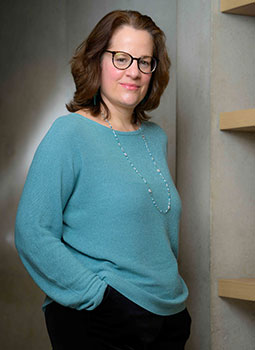Corporate Direct Lending :LBP AM stays the course for 2024
07.02.2024|2 min

In this episode, Isabelle Luy-Landès, Head of Corporate Debt at LBP AM, shares her insights on the challenges and opportunities shaping the Corporate Direct Lending landscape early in the year.
Since launching our LBPAM Mid Cap Senior Debt fund in June 2022, we have completed eleven diverse investments across a range of sectors (including industry, services, healthcare, engineering and technology) and company sizes (based on EBITDA), totalling almost €100 million. Buoyed by this success, we are approaching the new year with a mindset that is both cautious and confident. Here’s why.
Macroeconomic concerns are valid, but should not be overstated
The market environment remains complex, with inflation having stayed high since 2022 due to the energy crisis and rising labour costs. In response, the ECB has significantly raised its key interest rate – from 0.5% in 2022 to nearly 4% today.
We believe that both inflation and interest rates are likely to remain high throughout the year. However, their anticipated stabilisation should bring greater visibility and help make asset valuation easier.
Another source of concern is the rising corporate default rate, largely driven by the economic slowdown and tighter credit conditions. However, it is important to note that default rates were abnormally low between 2020 and the first half of 2022 due to the extensive government support mechanisms introduced during the pandemic. The current levels therefore largely reflect a return to normal, with a gradual return to pre-Covid levels In addition, the increasingly probable scenario of a soft economic landing should help keep defaults in check.
Financing activity slowed in 2023, but several factors should support a rebound this year
In France, private equity-backed acquisitions fell by 30% in volume and 66% in value last year. The share of private equity in M&A transactions dropped from 42% in 2022 to 21%.¹ Transaction times have increased significantly, and many deals simply fall through. However, the situation is less severe in the SME/mid-cap segment in which we operate. Here, we saw a 9% drop in volume and a 40% decline in value compared to the exceptional year of 2022 – still in line with the best pre-Covid years.²
Looking ahead, we expect deal activity to pick up in 2024. On the one hand, private equity funds have substantial dry powder. But they are also under pressure from investors seeking liquidity, pushing them to sell off some of their holdings. To do so, they tend to favour more premium, so-called “trophy assets”, as these are more liquid in a challenging market environment. On the other hand, companies face major financing needs for a range of reasons: supporting business transitions, financing build-up strategies or enabling generational transfers (more than half of French SMEs and mid-caps are expected to change ownership within the next decade for demographic reasons).
At the same time, company valuations are declining, mainly due to higher financing costs. To create value, private equity funds are increasingly stepping in to provide not just financial but also operational support – sharing their expertise in areas such as digitalisation, artificial intelligence, operational diversification (by geography, sector or end markets – particularly through external growth), decarbonisation, and ESG in the broadest sense.
1. Preliminary data from the Refinitiv Institute
2. Argos Index Q3 2023
